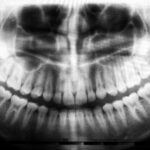Introduction
As we advance into 2024, the pursuit of sustained cognitive health into the later stages of life is more relevant than ever. With the aging global population, the focus on preventive health measures becomes imperative. A groundbreaking study led by Brian Ho and Ronald Cohen from the University of Florida gives us insightful revelations on how combining aerobic and strength training can be a strategic approach to maintaining brain health in your 80s and 90s.
The Power of Combined Exercises on Cognitive Function
The study assessed 184 cognitively healthy seniors aged between 85 to 99, analyzing the impact of their exercise routines on cognitive performance. Findings suggest that participants who engaged in both aerobic activities (like swimming and cycling) and strength training (such as weightlifting) exhibited superior cognitive functions compared to their peers who either remained sedentary or only participated in aerobic exercises. This included enhanced mental agility and the ability to adapt thinking processes swiftly.
Why This Study Matters
The implications of these findings are vast. With Alzheimer’s disease projected to affect nearly 14 million Americans by 2060, the need for effective preventive measures is urgent. This study not only provides hope but also a practical pathway to enhance cognitive health through physical fitness, debunking myths that associate old age with inevitable decline.
- Cost Benefits: Slowing cognitive decline can significantly reduce medical expenses and improve life quality.
- Stereotype Challenge: The active participation of the elderly in physical exercises challenges existing stereotypes about aging and activity.
Exploring Future Directions
Looking ahead, the research team aims to pinpoint which types of aerobic and strength exercises are most beneficial for cognitive health. Questions about the effectiveness of walking versus jogging, or weightlifting compared to resistance band exercises, are on the table. Furthermore, understanding the required exercise intensity and frequency for optimal cognitive benefits is crucial.
Exercise as a Potential Treatment Avenue
One of the most promising aspects of this research is exploring physical activity not just as a preventive measure, but also as a potential treatment for cognitive decline in the elderly. This opens up new avenues for enhancing life quality across the lifespan, positioning exercise as a cornerstone of geriatric care.
Conclusion
The study by Ho and Cohen is a beacon of hope and a call to action. It underscores the necessity of incorporating a mix of aerobic and strength training exercises into daily routines for those in their later years. As we move further into 2024, let this study be a reminder of the power of active living, not just for physical health, but for maintaining a sharp, agile mind well into our golden years.
Embracing such lifestyle changes can transform the landscape of aging, turning the dreaded years of decline into a phase of opportunity and well-being. It’s time to rethink our approach to aging, viewing it as a phase of life where improvement is not only possible but also achievable with the right strategies in place.
For reporters and media industry professionals covering health and aging topics, these insights offer a fresh angle on wellness in the elderly, backed by substantial research and potential for impactful storytelling.
Share This Insight
Help spread the word about the importance of combined exercises for brain health in seniors by sharing this article. Let’s change the narrative around aging and cognitive health together!
[Contributor: Brian Ho, PhD Candidate in Clinical & Health Psychology, University of Florida. Ronald Cohen, Professor of Clinical and Health Psychology, University of Florida.]







